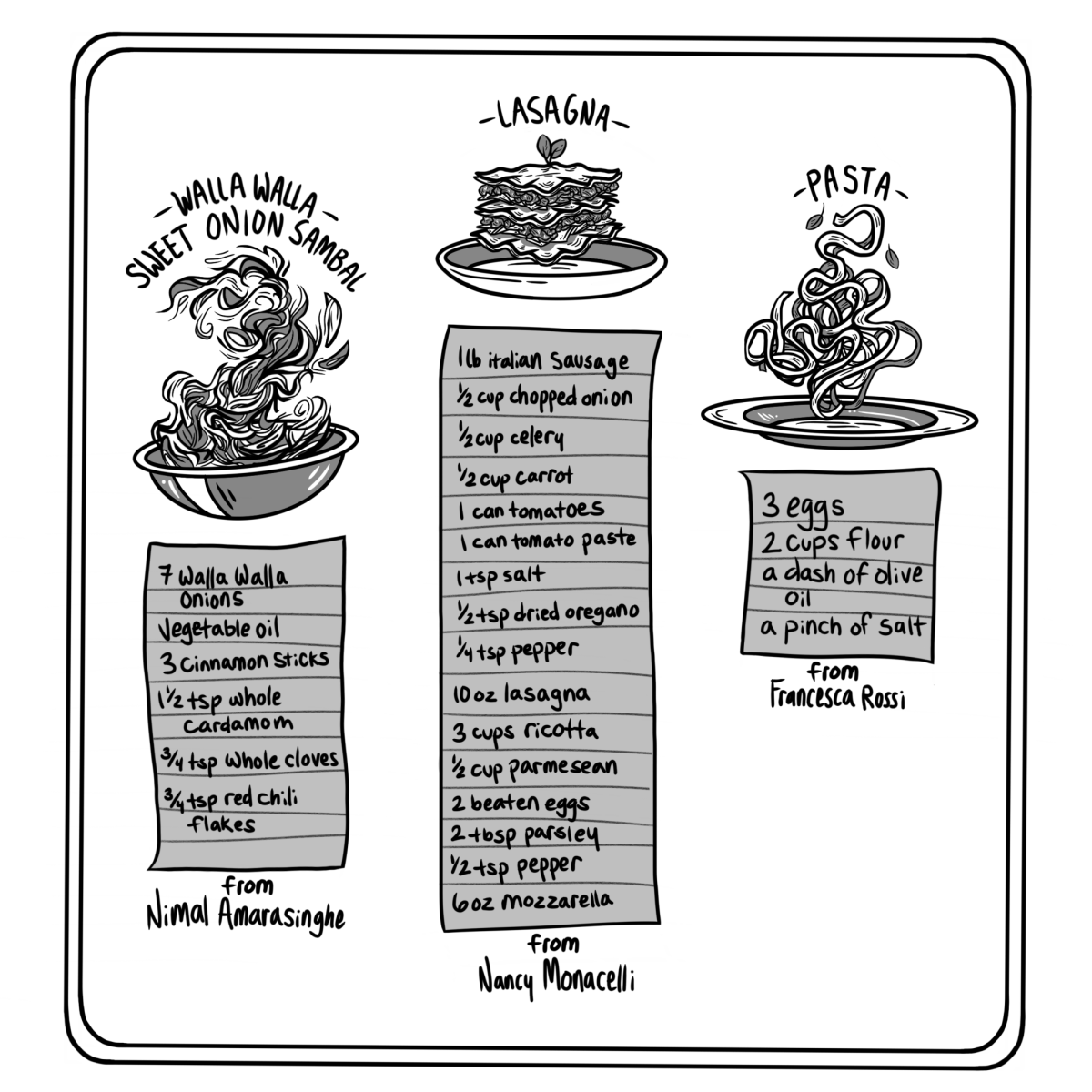 “Gluten-free” is a term that’s been getting thrown around more and more, both nationwide and on the Whitman campus.
“Gluten-free” is a term that’s been getting thrown around more and more, both nationwide and on the Whitman campus.
No longer a dietary restriction for those physically intolerant to gluten, people have adopted the gluten-free diet for a variety of reasons pertaining to health and well-being. While more established diets like vegetarianism––and even veganism––have become widely accepted (especially in places like Whitman), the gluten-free trend is something not as well known or understood.
Many people have a physical inability to consume gluten, such as those with Celiac disease, a digestive condition triggered by an aversion by the small intestine to gluten. Even so, the term “gluten-free” has recently become stigmatized as a trend popular to those susceptible to superficial health fads. Those who actually follow the gluten-free diet, however, would disagree.
Senior Heather Domonoske doesn’t have Celiac disease, but is still allergic to gluten––something she said is explained by an allergy test that isn’t completely developed.
“About one-third to half the people won’t test positive for Celiac’s but will have an allergy/inability to eat [gluten]. So there’s no perfect test,” she said.
Domonoske started being completely gluten-free her sophomore year, but has never liked or eaten wheat products like bread or pasta.
“It was sophomore year at Whitman that I got really sick and my doctor suggested cutting out different foods from my diet, so I cut gluten,” she said.
It wasn’t long before her dietary change reaped its benefits.
“Even after two weeks of not eating gluten, I was feeling better,” she said.
In response to people’s assumptions about the fad quality of being gluten-free, Domonoske expressed a little frustration.
“I can’t stand that. I get that a lot, like, ‘Oh, yeah, my friend’s not eating gluten either,'” she said. “And it’s frustrating because you’re saying, ‘No, I actually can’t eat gluten because I’ll get physically sick.'”
Often the risk of an allergy is overlooked because of the trend assumption. Domonoske said that many times in a restaurant, for example, foods outside of obvious wheat products are forgotten when tailoring to a gluten-free diet.
“I feel like you have to preface it, that you’re actually allergic to it, because people on that fad diet often don’t think things like soy sauce or salad dressing have gluten in them,” she said. “You have to be specific about what you can’t eat.”
But there’s another side to the growing trend-like quality of being gluten-free. Since more and more people have adopted the diet, production and accessibility of gluten-free products has increased noticeably.
“In some ways it’s because there are more products that are being made gluten-free,” said Domonoske. “So there’s definitely pros and cons.”
This increased demand for––and awareness of––the gluten-free diet is very apparent in Whitman’s dining halls. Since Domonoske’s sophomore year, she has noticed a very substantial increase in gluten-free choices. And even before Bon Appétit’s surge in gluten-free options, Domonoske was very happy with their cooperation.
“Bon Appétit people are totally willing to work with you, and get you what you need,” she said. “They’re super open to buying things if you bring it to their attention, and asking for your opinions.”
Reid Café ’66 offers things like gluten-free soy sauce and pizza crust, and the dining halls will provide gluten-free pasta if requested. And because of the high prices of gluten-free products, Domonoske said that she’s able to eat many more bread products when she eats in a dining hall.
“Compared to other dining halls I’ve visited,” Domonoske said, “it’s so helpful of them.”
Sophomore Paul Prevou, on the other hand, loves the freedom of buying his own food and living outside the confines of a meal plan. He also finds it to be noticably more cost-effective, contrary to Domonoske’s mention of expensive gluten-free products.
This difference is because Prevou isn’t gluten-free due to gluten intolerance. Instead, he’s adopted the diet for slightly different reasons.
“It’s not necessarily for the fact that it’s gluten-free,” he said. “But being gluten-free is coincidental with the diet I prefer for fat-loss.”
He has his own health restrictions to account for, but it’s not an allergy to gluten. Prevou has an auto-immune disease and is prone to high levels of inflammation. Avoiding gluten helps him keep this inflammation down.
“If I can reduce my inflammation levels in any way, I might as well go ahead and do it,” he said.
Together with the nutritional component of avoiding gluten-based products, Prevou sees a win-win situation.
“I can reduce my inflammation and control my inflammatory symptoms to some extent, and I can also cut fat,” he said.
Prevou doesn’t avoid gluten as strictly as Domonoske does. As a resident of the Phi Delta Theta house, he doesn’t have the freedom to choose the diet he prefers and isn’t currently gluten-free.
“Right now I’m just having to go with whatever Bob cooks,” he said.
But Prevou also sees the effect of the fad-like quality of being gluten-free.
“If you throw around the term ‘gluten-free’ back home, I think a lot of people would laugh at me, but here I think a lot more people are conscious of why being gluten-free is a good thing,” he said. “I’ve never run into so many people with Celiac disease as I have here.”
However, Prevou doesn’t really dwell on the label people have been putting on being gluten-free.
“I think some people might loosely associate it with the ‘unpretentiousness’ of Whitman students, but ultimately, your diet is for you,” he said.
On the other hand, senior Christine Leibbrand, someone with Celiac disease, says she actually hasn’t experienced any assumptions about her gluten-free diet.
“I’ve never had anybody assume I’m gluten-free by choice,” she said.
She explained that it’s probably a result of people just being aware of her situation since freshman year, but as for people making a choice to be gluten-free, she expressed a bit of confusion.
“I can see why people make the choice for health reasons, but it’s always seemed like a funny lifestyle choice to me. From my experience being gluten-free,” she said, “I know you can lose out on a lot of nutritional value from not eating foods with gluten, and eating gluten-free foods often gives you more calories than the alternative.”
Regardless of the reasons, the spread of “gluten-free” has become obvious. Whether it’s to follow a fad or an essential health precaution, it seems this multi-faceted diet isn’t going anywhere.



















